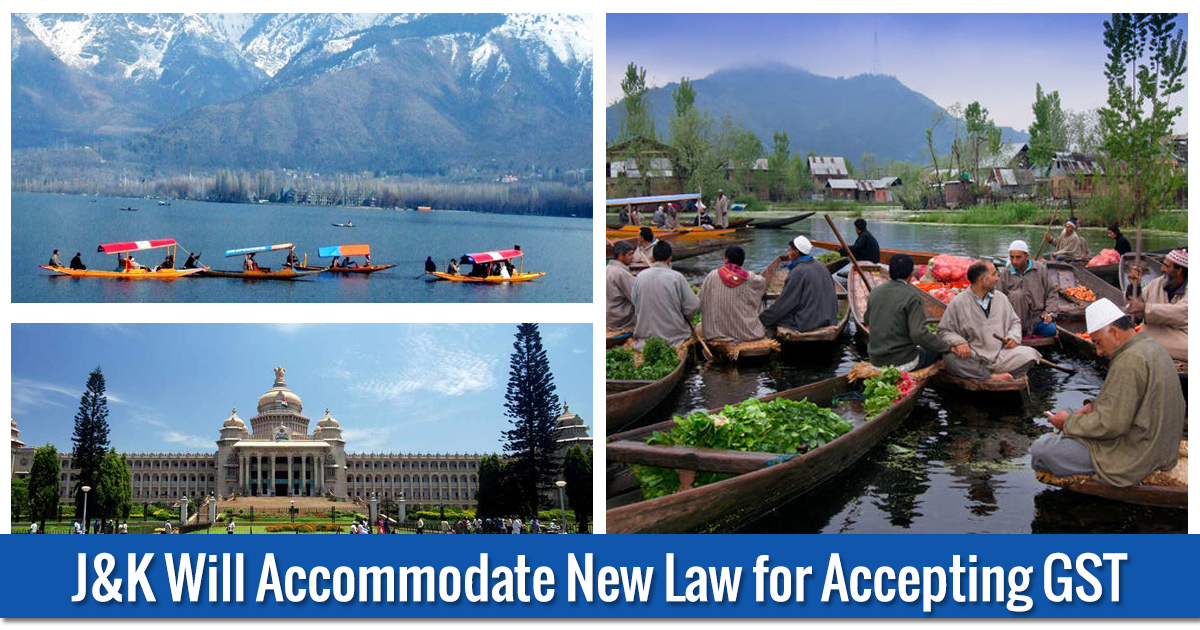On the verge of new taxation regime occupying the nation, there are still some obligations which are to be met before fully realizing goods and service tax in India. One of the most controversial states in India i.e. Jammu & Kashmir will have to pass a special law in order to imply the goods and service tax as the state’s present constitutional candidature will not allow the application of the new tax scheme in the state. Recently, except J&K, the CGST and the IGST bills were extended PAN India, as the bills were introduced in the Lok Sabha in sorting out this last procedure of legislation in Parliament to force out the goods and service tax on its scheduled date of July 1.
Read Also: Know the Actual Meaning of SGST, IGST and CGST
So, as to comply with the general rule, the J&K state assembly will now have to pass a special legislation in which the state will accept both CGST and IGST bills and application of both of the bills will be regularized in the state. The state assembly will approve these bills along with the State GST bill which is a mandate for every state of the nation. And as soon as the J&K assembly passes the law, the union government will take the action in the amendment of both the CGST and IGST laws in which it rendered that they will not be applying to all the states and delete the said statement.
As a known fact, the service tax provision is not applicable in the state as it implies its own kind of taxes for the services rendered in the state. The reason being, Article 370 in the constitution has offered a significant autonomous privilege to the state in which most of the decisions it can take solely while the only power that Parliament of India can levy is on defense, external affairs and communication associated issues of the state. As per the media source, the Finance minister Arun Jaitley told in Lok Sabha that the bills will be applicable in whole India except the state of Jammu and Kashmir. After the legislation acquires the terms being said in the parliament, the GST council will have more power over the state legislatures.









